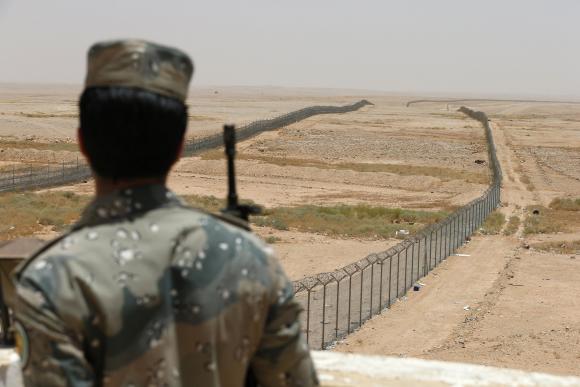We are witnessing a unique situation in which different countries, parties and tribes now have no choice but to take a position against the Islamic State of Iraq and Syria (ISIS). ISIS is the reason behind a strange gathering of opponents. Most of the Iraqi forces—whether Sunni, Shi’ite or Kurd—agreed to reconcile out of a mutual fear of ISIS. ISIS has also accelerated the departure of Nuri Al-Maliki from the premiership with most of his Sunni opposition now returning to Baghdad, ready to cooperate.
The Kurdistan Regional Government (KRG) reconciled with the government in Baghdad, returning two oil fields to its control and ending the enduring state of estrangement. Even US President Barack Obama has been forced to renege on his promise not to involve US troops in combat operations in Iraq since the pullout. Likewise, Iran has abandoned Maliki and Saudi Arabia has accepted his successor Haider Al-Abadi. What an extraordinary turn of events! The moral of this story is that there is no place for ISIS and that it is impossible to use it to manipulate the region.
There has been a heated dispute over ISIS among the tribal leaders in Iraq’s western Sunni-majority Anbar province. Some tribes have declared that with the departure of Maliki, they are now ready to cooperate with the government to fight against the terrorist organization that threatens all. Other tribes have announced that they will continue to refuse to fight against ISIS, hoping to use its advance to ensure that all their demands are met.
The fight to defeat ISIS will be a long and perilous one. While its opponents agreed to put aside their disagreements in order to fight against it together, ISIS is also demonstrating its intelligence, including the intelligence to exploit the political scene. ISIS wants to exploit the disagreements between the Sunni tribes in Anbar and Nineveh. While some regional governments are trying to be even more intelligent, seeking to use ISIS to threaten not only Iraq, but also Saudi Arabia. They sought to use the Sunni tribes that rebelled against Maliki to cover ISIS’s deployment in western Iraq, enabling it to recruit the largest possible number of angry and disenfranchised Iraqis.
Now, the terrorist organization has become a serious force in different parts of Iraq. It owns oil and wheat after seizing governmental silos. It also has advanced weaponry after seizing Iraqi army stores. ISIS is able to control large areas thanks to the increase in its numbers and the money it seized.
ISIS, the common enemy, has now become a general ‘red line,’ regardless of the different goals and objectives being pursued by each party in the regional game.

Trackbacks/Pingbacks